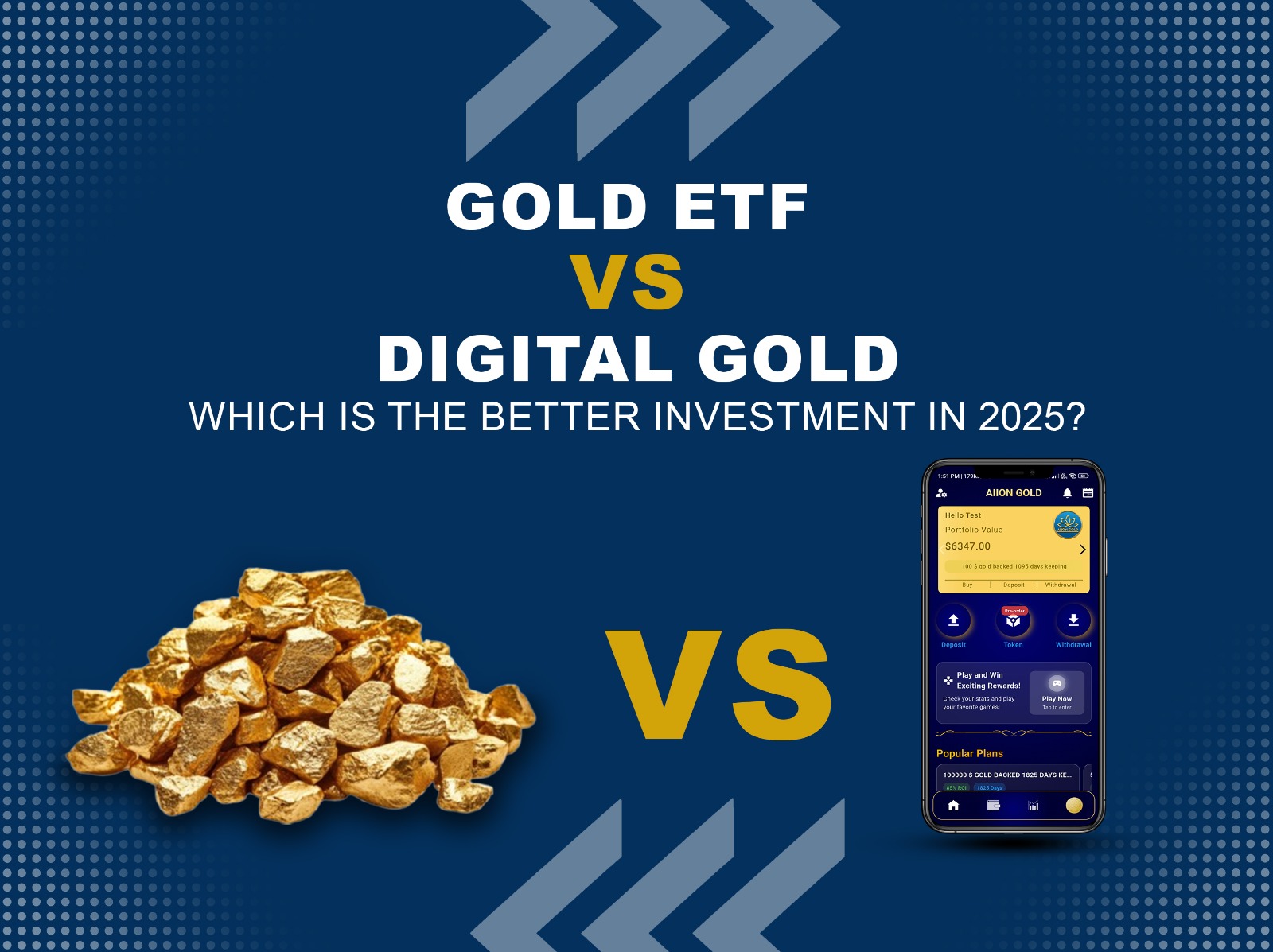Gold ETF vs Digital Gold: Which is the Smarter Investment in 2025?


Investors exploring the gold market today face two compelling digital avenues: Gold Exchange-Traded Funds (ETFs) and Digital Gold. As the financial landscape becomes increasingly digitized, understanding these instruments' distinct characteristics is crucial for making informed decisions. This article provides an in-depth comparison to help investors choose the better option for their portfolio.
Understanding the Basics: Gold ETF and Digital Gold
A Gold ETF (Exchange-Traded Fund) is a mutual fund listed and traded on stock exchanges, designed to track the price of gold. Each unit of a gold ETF represents a specific quantity of physical gold, typically 1 gram.
Key Features of Gold ETFs:
Digital Gold refers to gold purchased online in digital form, fully backed by physical gold stored in secure vaults by third-party custodians. Investors can buy small fractions (even ₹1 worth) without needing a Demat account.
Key Features of Digital Gold:
Detailed Comparison: Gold ETF vs Digital Gold
Choosing between Gold ETF and Digital Gold depends entirely on your investment profile:
Smart investors often diversify by combining both instruments to balance convenience and performance.
1. Can I convert Digital Gold to physical gold?
Yes, most platforms offer doorstep delivery or pickup options.
2. Do Gold ETFs offer physical delivery?
No. Gold ETFs are purely financial instruments and cannot be converted to physical gold.
3. Is Digital Gold safe?
It is relatively safe, but not under SEBI regulation. Always choose reputed providers like MMTC-PAMP, SafeGold, or Augmont.
4. Can NRIs invest in Gold ETFs or Digital Gold?
NRIs can invest in Gold ETFs via NRO/NRE accounts, but Digital Gold access varies by platform.
5. Which one gives better returns?
Returns depend on gold price movement. Cost structure and taxes may influence net returns—Gold ETFs typically have the edge long-term.